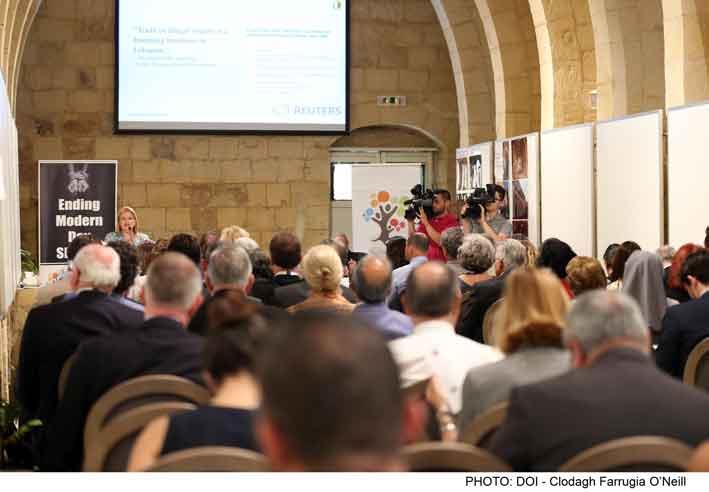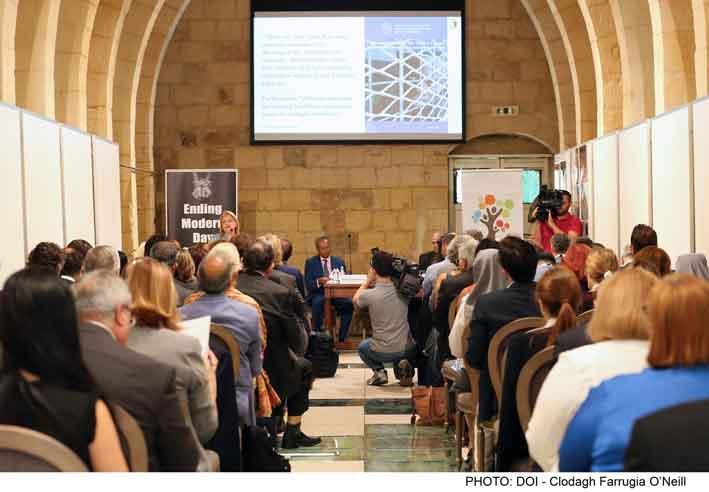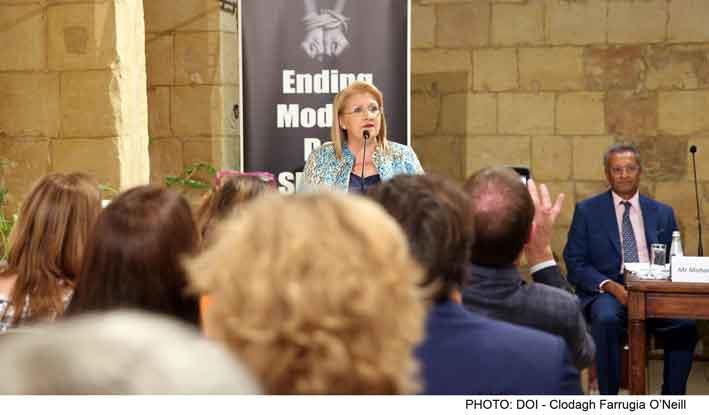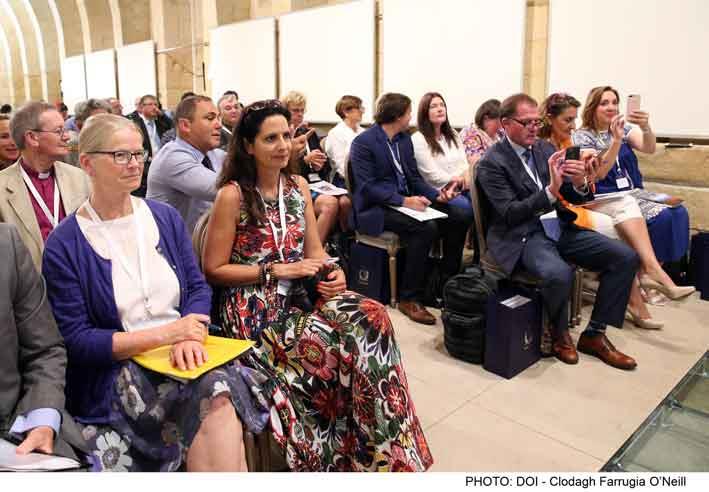President Marie Louise Coleiro Preca today stressed that around 11 per cent of the overall child population are estimated to be affected by modern slavery. She added that more than half of them, roughly 85 million, are “engaged in hazardous work”.
“Men and women, girls and boys, are being objectified for profits,” she said.
She called on private sector businesses to ensure that across the board, from suppliers in other countries to distributors on their home turf, that people are not being exploited.
President Coleiro Preca was addressing a conference on modern slavery, organised by the Amersi Foundation, the Pontifical Academy of Sciences and the President’s Foundation for the Wellbeing of Society.
“Sub-Saharan Africa remains the region with the highest rate of child labour, with 21 per cent of children employed as child labourers. Although the phenomenon of child labour is more commonly associated with non-EU countries, in spite of a lack of reliable comprehensive statistical sources, there is evidence, as declared by the European Parliamentary Research Service, that child labour persists in the EU and Europe as well.”

Turning to the issue of sex trafficking, the President highlighted how nearly all victims are women and girls.
“These examples of modern day slavery are serious crimes. Let’s be courageous, during this summit, and call these serious crimes by their name…It is not enough for our international authorities to be aware, and call for observance days. We must all increase our efforts to put words into practical action,” she said.
The conference is being addressed by a number of experts in the area of modern slavery, which comes in many forms. In Malta, the issue of modern day slavery is most tangible when considering the hundreds of refugees who have embarked on the dangerous mission across the Mediterranean to reach European shores. Many such refugees, fleeing dangerous situations for a more stable future, are exploited and taken advantage of by those seeking to profit off of others’ vulnerabilities.

President Coleiro Preca quoted the Head of Operations and Emergencies for the International Organisation for Migration (IOM), Mohammed Abdiker, where he said:
“The latest reports of ‘slave markets’ for migrants can be added to a long list of outrages in Libya. The situation is dire. The more IOM engages inside Libya, the more we learn that it is a vale of tears for all too many migrants”.
She also made reference to reports of organ trafficking that is taking place in Lebanon, which the President described as ‘shocking’.
One of the main aims of the conference is to share models and best practices, so that representatives of various nations can come together and hammer out what works, and what does not.
An organ trafficker in Lebanon, speaking to the BBC, was quoted as saying “Those who are not registered as refugees are struggling. What can they do? They are desperate, and they have no other means to survive but to sell their organs”.
Migration and the reception of refugees is a controversial issue locally, however over the past two years, the slump in numbers arriving via boat from Africa has mitigated concerns by the public.

“Thinking that a great number of human beings are being subjected to the slave trade, a few miles from where we are now, on the southern shores of our Mediterranean Sea, with repercussions for Europe, and humanity at large, makes me feel, and should make Europe, all the more responsible to do much more,” said the President.
A driving force in the proliferation of modern day slavery is the exploitation of legal grey areas, and the complacency in ‘our’ systems, she emphasised. Another driving force is extreme poverty.
“Making modern slavery a thing of the past will require a fight against organised crime, but we must also fight the root causes, of poverty and precarity, which make a person vulnerable to exploitation in the first place.”
President Coleiro Preca said there was a need for discussion, including the long term effects of national models, such as those followed in Sweden, France and Germany.
“Inspired by such consultations, we must find ways to encourage directives to be developed, at a European level, which effectively tackle the challenges of illicit prostitution, and which provide support for victims.”

On the issue of unaccompanied migrant children, who are the most vulnerable to exploitation, Europol was quoted as saying that roughly 27 per cent of last year’s migrant arrivals to Europe fleeing situations of war, of environmental devastation, and extreme precarity, were children.
“At a minimum, in one year, 10,000 unaccompanied children are now unaccounted for.”
The President expressed her satisfaction that a local conference on refugees and missing children led to the EU commission launching a series of priority actions last April.
She continued by saying it is not just migrants who are at risk, but also people in the most developed nations “are threatened by contemporary forms of slavery”.
Forming an EU-level observatory to combat modern slavery was suggested, with the inclusion of appointing national commissioners who are empowered to take decisions on behalf of the vulnerable.
Taking on a more practical tone, the President urged all businesses within the private sector to do their part by helping to root out and address potential instances of modern day slavery, within their supply chains across industries.
The President also urged authorities to do more, “intensify the training received by law enforcement representatives, educators and other professionals who come in contact with the public. I urge all professionals to build stronger links with civil society and with international organisations by sharing good practices, to develop holistic and interdisciplinary strategies.”
She concluded by saying urging joint efforts “to promote awareness, to inform and educate, and in the process effectively support victims, their families, and humanity at large, to achieve practical results for the benefit off both present and future generations.”